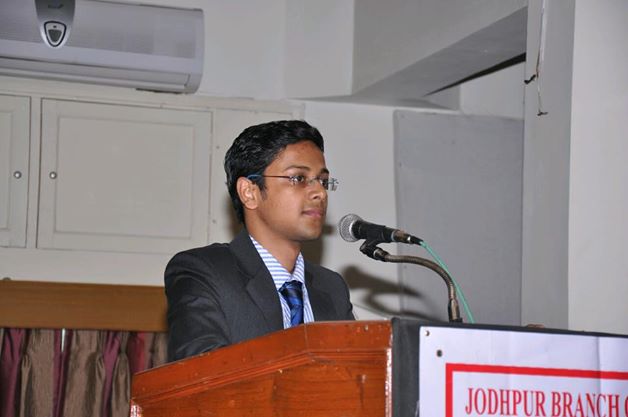| Article Section | |||||||||||
Anamoly - Pre-deposit |
|||||||||||
|
|||||||||||
Anamoly - Pre-deposit |
|||||||||||
|
|||||||||||
Power corrupts and absolute power corrupts absolutely. In order to control the misuse of such powers, all statutes provides right of appeal. But in order to ensure that the right of appeal couldn’t be misused there is a provision of pre-deposit most of the statutes. Before 6-8-2014 Before amendment in Section 35F of Central excise Act 1944, it states that where an application for appeal needs to be filed then the duty demanded or penalty levied needs to be deposited. However, the assessee could file an application for dispensing with the deposit of duty demanded or penalty levied and the Commissioner (Appeals) or the Appellate tribunal may dispense with the requirement of pre-deposit or may order for reduction in pre-deposit considering the plea of financial hardship or the facts and merits of the case. After 6-8-2014 Now the provision related to pre-deposit is amended and it was made mandatory to make a pre-deposit of 7.5%/10% of the duty demanded or penalty levied or the both. Although he basic reason of bringing this amendment is to reduce litigations and to provide a uniform remedy to pre-deposit to each person. However, such an amendment has left many questions and answers to some of such questions are still not found. In the foregoing paragraphs we will discuss the various situations which would arise due to amendment. Effect on Existing cases The first and foremost question arising in mind is that what will happen to the existing cases pending in relation to pre-deposit or the appeals lying before the respective adjudicating authority. The solution is provided in the second proviso to the section itself which states that the amended provision will not be applied to the stay applications and appeals pending before any appellate authority prior to the commencement of the Finance act 2014. Thus, all the stay applications and appeals pending are to be decided in reference to the provisions which were in force before amendment. Maximum limit of pre-deposit Another question that flashes in mind is that whether the amount of pre-deposit could be any amount or there is any upper limit on the amount of such pre-deposit. The answer to this question again lies in the proviso to the said section itself. The said proviso states that the maximum amount of pre-deposit could not exceed rupees ten crores. Thus, in any case the amount of pre-deposit is rupees ten crores. Whether pre-deposit is mandatory With the amendment in the said section, now it is mandatory to make a pre-deposit for entertaining the appeal. The language of the section says that the pre-deposit is mandatory. Hence, it can be inferred that the limit of 7.5%/10% is both the minimum and maximum limit and thus this 7.5%/10% is mandatory pre-deposit. In absence of it one cannot file any appeal. However, in the times to come someone may plea financial hardship against this mandatory pre-deposit also and the court of law may order for filing of appeal without such pre-deposit in order to meet the ends of justice. However, till the writing up of this article neither any such case was decided nor there is any provision which provides relief against such mandatory pre-deposit. Another noticeable point is that in case appeal is filed for refund, the provision of pre-deposit will not be applied as this provision is applicable only in case of demand from the assessee not in the case of refund to the assesssee. Cause of action arose before 6-8-2014 and appeal filed after the said date A very crucial point that arises with this amendment is that whether the amended provision is applicable to the appeals to be filed after the enforcement of the said provision or will be applicable to the cause of action arising after the enforcement of the said provision. To put it differently, it can be classified as :- (a) The cause of action arose before 6-8-2014 and the appeal was filed after 6-8-2014. (b) The cause of action arose after 6-8-2014 and the appeal was filed after 6-8-2014. Here answer to the second point is very simple as the amended provision will be applied. As the cause of action and the appeal both arose after the date of amendment and hence the amended provision will be applicable. In other words, the assessee had to make mandatory pre-deposit before filing of appeal. Now for the pint no (a) above there is controversy. The cause of action arose before the amendment but the appeal was filed after the amendment. Which provision will be applicable to this situation, the provisions in force on the date of cause of action or the provisions in force on the date of filing of appeal. Let’s have a look at the verdicts of the courts received so far. In the case of Keltron IT Business Group v UOI 2015 (4) TMI 969 - KERALA HIGH COURT as decided on 20th March 2015, it was decide by the Kerala High Court that “…….The only point that arises for consideration is whether the petitioner would have to deposit the amount of 7.5% of the tax confirmed against him, as a condition for pursuing the appellate remedy before the Tribunal. I note in this connection for pursuing the appellate remedy before this Tribunal. I not in this connection that recently, a Division Bench of High Court of Telengana & Andhra Pradesh has taken a view that, in so much as the lis in the question had commenced prior to the introduction of the amendment to the Finance Act, 1994 with effect from August, 2014, the petetioner’s right of appeal as per the erstwhile provisions of law would not be affected by the provisions introduced by the amendment of 2014. Although not expressly referred to in the interim order dated 19-2-2015 passed by the High Court of Telengana & Andhra Pradesh in W.P. No 3393/2015 M/s K RAMA MOHANARAO & CO Versus UNION OF INDIA, MINISTRY OF FINANCE, NEW DELHI AND OTHERS 2015 (4) TMI 813 - ANDHRA PRADESH HIGH COURT , the view seems to be consistent with the settled law that the institution of a suit carries with it an implication that all rights of appeal then in force are preserved to the parties thereto till the rest of the career of the suit and, further, that the right of appeal that is vested is to be governed by the law prevailing at the date of institution of the suit or proceeding, and not by the law that prevails at the date of its decision or at the date of filing of appeal………” Hence, the court was of the view that although the appeal was filed after the amendment of the provision of pre-deposit but as the lis was commenced before the date of amendment, assessee will not be required to make any payment as a pre-condition for the hearing of the waiver application. In another case of Hindustan Petroleum Corporation Ltd and Anr vs UOI 2015 (11) TMI 959 - KARNATAKA HIGH COURT as decided on 7th October 2015 by Karnataka High Court, it was held as “…………(3) Section 35F of the Act has retrospective operation and is not restricted to only prospective cases. It applies to all lis which have commenced prior to or after the enforcement of the amendment, except to cases covered under the second proviso thereof. (4) That in view of insertion of second proviso to amended Section 35F of the Act , it is held that the same is in the nature of a saving clause, keeping intact the earlier provisions of Section 35F to be made applicable to circumstances noted under second proviso. That in all other cases not covered under the second proviso, the amended Section 35F is applicable as it has a retrospective operation. Such a legislation by amendment having a retrospective operation is a valid piece of legislation…….” Hence, it was concluded that the amended Section 35F has a retrospective operation and the assessee had to make a pre-deposit if appeal has to be filed after 6-8-2014 irrespective of the commencement of lis. Conclusion All the queries to the situations arising due to amendment of provision of Section 35F have been answered concusively except one i.e “where the lis was commenced before 6-8-2014 and the appeal was filed after 6-8-2014”. In such situation the author has the conservative view to make the pre-deposit of the specified percentage before filing of appeal. However, the other side too has enough force of the High court decision.
By: CA Akash Phophalia - May 21, 2016
Discussions to this article
Excellent summarisation of present position Mr. Phophalia. Please write part-2 based on important Aerif Engs.. case of Delhi High Court. (2016 (3) TMI 487 - DELHI HIGH COURT) Also, carry forward the discussion by citing 2016 (5) TMI 672 - MADRAS HIGH COURT
|
|||||||||||
| |
|||||||||||
 9911796707
9911796707


